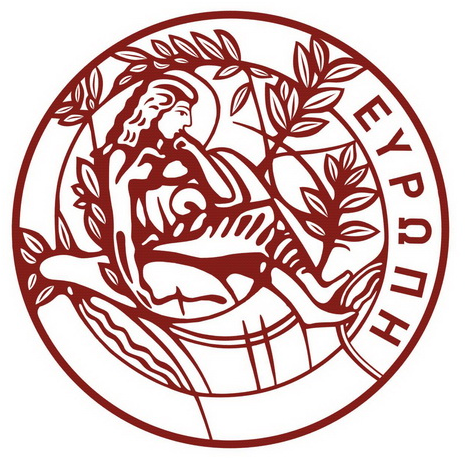Seminars 2010
Monday, May 31st, 2010
- Speaker
- Dr. Vasileios Koutsos
- Affiliation
- Institute for Materials and Processes, School of Engineering & Centre for Materials Science and Engineering, The University of Edinburgh, UK
- Title
- Soft Nanostructures on Surfaces
- Location
- Department of Physics Bldg., Voutes, 3rd floor Seminar Room
- Time
- 12:00
- Language
- English
- Abstract
-
Polymers and nanocolloids are ideal candidates for the formation of nanostructures and nanopatterns on surfaces by using self-assembly methodologies. Such fabrication techniques have great potential for the efficient and inexpensive assembly of nano/microscale structures for many applications ranging from microelectronics and chemical sensor technology to biomedical implants and targeted drug/gene delivery. However, there are plenty of unsolved problems in our fundamental understanding of the behaviour of soft condensed matter systems in confined spaces. The prediction and determination of materials properties at the nanoscale is not a trivial task and unexpected deviations from bulk behaviour are not uncommon. The atomic force microscope (AFM) has played a critical role in recent advances in the nanoscale analysis of such systems and generally in the development of the field of soft nanotechnology. No other instrument is so versatile to be able to measure the structural, mechanical, frictional and adhesive properties of soft nanostructures in dry state and in liquids with an unprecedented spatial and force resolution at the sub-nanometer and sub-nanonewton scale, respectively. In this talk, I will present AFM investigations of various soft matter systems including: self-assembled polymer/nanoparticle nanostructures and monolayers, ultrathin films and biocompatible ultrathin-shell hollow microspheres.
Tuesday, February 23rd, 2010
- Speaker
- Dr. John Androulakis
- Affiliation
- Department of Chemistry, Northwestern University, USA
- Title
- Phase separation as a synthetic tool: two examples and future outlook
- Location
- Department of Physics Bldg., Voutes, 3rd floor Seminar Room
- Time
- 12:00
- Language
- English
Thursday, January 21st, 2010
- Speaker
- Dr. Georgios Vlastos
- Affiliation
- Dept. of Materials Science and Technology, UoC
- Title
- Effects of biomechanical forces on blood rheology and oxidant status in the cardiovascular system
- Location
- Department of Physics Bldg., Voutes, 3rd floor Seminar Room
- Time
- 12:00
- Language
- English
- Abstract
-
In human cardiovascular system exists a continuous and important presence of mechanical forces, influencing the biological function of the circulation. The rheological study of blood gives valuable information on the biophysical properties of blood cells. In many pathological situations, red cell deformability is reduced resulting in increased flow resistance and elevated blood viscosity, which burdens the heart function. Furthermore, the flow of blood in the arteries and veins causes shear stress, a tangential force acting on the vascular wall and the endothelium and the arterial pressure initiates a cyclic strain perpendicular to the vascular wall. It will be discussed, the mechanisms by which the mechanical deformations at the cell and organ level are being translated to biochemical-biological signals and how these signals influence the oxidative and genetic status of the cell acting as mediators of vascular inflammation.


